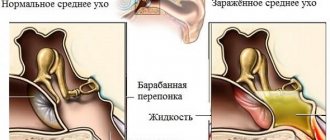When sexual activity begins, many girls are already mentally prepared for the need to use contraceptives. But despite this, love, infatuation, “rose-colored glasses” and even fear often lead to girls becoming pregnant early, and often this pregnancy is not desirable.
Therefore, women who find out that they are pregnant go straight to the gynecologist. This is true, because only a professional can make an accurate diagnosis and perform a high-quality operation.
But often, you can find cases when a girl is afraid to admit an unwanted pregnancy to her relatives and begins treatment with folk remedies. Many of the folk remedies are strange, absurd, and often dangerous, which can have a bad effect on the girl’s health, but the fear is stronger.
Therefore, before you familiarize yourself with existing methods, think first about whether you need to hide your pregnancy, and whether this will harm your body. But if you still decide to do this, then this article is for you.
How to terminate an early pregnancy using folk remedies?
- The first and most effective method is a hot bath, to which you need to add mustard powder. At this time, the vessels of the pelvic organs dilate, and this in turn increases the pressure in the uterine cavity, which is the cause of bleeding. And everything comes out with the fruit. This method is indeed the most effective, but its negative consequence is profuse hemorrhage, which cannot be stopped at home.
- Tansy decoction. The meaning of this method is that tansy contains poison that leads to the death of the fetus. And after this, the fetus decomposes, and the woman’s body is subjected to severe intoxication.
- Herbs and decoctions made from them are popular. During abortion, they provoke uterine hypertonicity, which leads to miscarriage. So, watercress grass needs to be prepared as follows. After washing the grass and scalding it with boiling water, chop it. Then squeeze out all the juice through cheesecloth and add water two to one. After this, the broth should be boiled for fifteen minutes and then allowed to brew. And application: drink twice a day, a tablespoon.
- Pour a teaspoon of cloves into a glass of boiling water and leave to steep for a couple of hours. Application: twice a day, two tablespoons.
- They also use barberry leaves, which are poured into a glass of alcohol and infused for several weeks until the tincture acquires a green tint and tastes sour. Application: three times a day, twenty drops.
- The next method for terminating pregnancy and increasing uterine hypertonicity is rosehip infusion. So, for one hundred grams of rose hips, use two glasses of boiling water, which is infused for four hours. Application: drink three times a day, one glass before meals.
- But with thyme you will need to work hard. It needs to be poured with a glass of alcohol and cooked for eight minutes. Application: drink ten drops twice a day.
- Well, the last one in the context of a miscarriage will be the swamp blasphemous. Fill it with a glass of boiling water and let it sit for a couple of hours. This plant is extremely poisonous, which at high concentrations causes a pathogenic reaction. Application: drink three times a day, two tablespoons warmed.
But I would still like to note that before self-medicating, contact a gynecologist who can give you professional advice, because there are many ways to perform a painless abortion in modern medicine.
Late abortion operations are legal, so you should not be afraid. Termination of pregnancy using folk remedies is of interest to many women, especially very young women, who are ashamed to go to the clinic at their place of residence on this issue, and do not have the money to carry out the procedure in a private clinic.
None of the sane people would advise you to experiment with your health, including the authors of this material, calling on you to come to your senses. We will provide background information on how to carry out, or at least try, termination of pregnancy using folk remedies and what the risks are.
First, let's draw a line between abortion and accelerating the arrival of delayed menstruation. In the second case, everything is much simpler. Delayed menstruation occurs due to heat, stress, depression and many other reasons. As a rule, critical days begin on their own. For frequent delays, hormonal therapy is recommended. But it is not at all the same as folk and medical remedies for terminating pregnancy in the early stages. To find out if you are pregnant, you need to do a test. You can do it from the first day of your missed period. If it is done according to the instructions and shows a negative result, most likely it is just a delay in menstruation.
But these are methods that we strongly do not recommend using.
1. Herbs plus a hot bath. The most famous and popular remedy is tansy for abortion, a herb with abortifacient properties. Sold in pharmacies. It is recommended to take a strong decoction and then sit in a hot bath. This method is dangerous due to severe bleeding, which will be difficult to stop on your own. But even if bleeding occurs like menstruation, it is not at all a fact that you have gotten rid of pregnancy. The fertilized egg may continue to develop, or worse, stop developing but remain in the uterus, provoking a severe inflammatory process.
2. Physical activity and sex. Jumping, walking a lot, especially in the heat, running, having sex often, preferably while experiencing an orgasm - all this can tone the uterus, but it is unlikely to go further than that...
3. Milk and iodine. This method is very popular among teenage girls. They don’t even suspect that “remedies” like those “given to a cow to make her go into heat” or terminating a pregnancy with milk with iodine are very dangerous to health. The second “drug” can generally lead to severe damage to the thyroid gland, which in the future will cause infertility.
And also, terminating a pregnancy using a folk remedy, any kind at that, is very dangerous for the reason that it is not a fact that the fertilized egg develops in the uterus. What if this is an ectopic pregnancy? Its “interruption” can end very badly... And it is impossible to distinguish an ectopic pregnancy from an intrauterine pregnancy without an ultrasound. The signs are still the same. Positive pregnancy test, toxicosis, enlarged breasts, heavy discharge, sometimes with brown spotting, etc.
If the pregnancy test shows a positive result, but the child is not wanted, do not take risks, do not try to get rid of it yourself. There is a very low chance of a complete miscarriage, but a very high percentage of major health problems. A folk remedy for early termination of pregnancy is not the answer. If you really don’t want surgical intervention, you can have a medical abortion in a clinic if your pregnancy is no more than 6 weeks old.
Unprotected intercourse often leads to pregnancy. But pregnancy is not always desirable; a woman has to decide whether to keep the child or not. If the choice is made in favor of abandoning the baby, then the question arises of how to terminate the pregnancy. This can be done with the help of tablets and folk remedies. They will be discussed further below.
This article is for informational purposes and is not an instruction for action. Before using folk remedies or medications, be sure to visit a doctor. After the examination, he will choose the most effective and gentle way to terminate your pregnancy.
Medication method
You can disrupt an early pregnancy with the help of special pills. They affect the woman’s hormonal background and lead to the release of the uterus from the egg. After this, the likelihood that you will not be able to have children is low, but it still exists, which is important to consider. These tablets can be used if the pregnancy period does not exceed 6 weeks. Among the most effective and safest are the following:
- Mytholian;
- Postinor;
- Mifepristone;
- Mifegin;
- Pencrofton;
- Mifeprex.
Please note that these tablets cannot be used during an ectopic pregnancy. In addition, they are not recommended for those who have chronic kidney or heart disease, or have had a history of allergic reactions to medications. Taking pills to terminate pregnancy is prohibited for those who have uterine fibroids and malignant tumors, regardless of location.
You also need to take into account that such drugs have their drawbacks. Thus, they can lead to bleeding or bleeding disorders. After taking them, there is a possibility of hormonal imbalance and the development of inflammatory processes. Of course, these pills do not provide a 100% guarantee of termination of pregnancy.
Medical abortion at home
It is possible to prevent pregnancy without leaving home. For this purpose, special pharmacological agents are used, the main effect of which is to stop the production of progesterone and provoke hypertonicity of the uterus, which results in bleeding and the rupture of the fertilized egg. Medicines in this group are taken immediately after sexual intercourse or within 24–72 hours.
Reasons when it is advisable to use such means:
- sexual intercourse with an unfamiliar partner;
- the condom broke during sex;
- forgot to take a contraceptive;
- unsuccessful interruption of sexual intercourse;
- error in calculations using the calendar method.
Abortive emergency contraceptives help if they are used within 3 days after sexual intercourse; later they are no longer effective.
Table “Medicines for abortion up to 72 hours”
Severe kidney pathologies
Long gestational age
Teenagers under 16 years old
Late pregnancy
Acute liver dysfunction
Lactose intolerance, lack of lactase in the body
Take with caution if there are disorders of the bile ducts or jaundice.
Tablets intended to disrupt a confirmed pregnancy - their use is permissible only in the early stages, and after 12 weeks is strictly prohibited, otherwise there is a high probability of infertility or death for the woman.
There are also medications to get rid of an unwanted pregnancy and provoke a miscarriage at a period of more than a week. They should be taken only after pregnancy has been confirmed - a test and ultrasound have been done.
Table “Effective pills for medical abortion at home”
Intolerance to drug components
Scars in the cavity of the reproductive organ
Vascular pathologies (coronary or cerebral)
Late pregnancy
Duration more than 6 weeks
Adrenal dysfunction
After using medications that help to disrupt an early pregnancy, you need to visit a gynecologist within 1–2 weeks and undergo an ultrasound of the pelvic organs. This is necessary to check the effectiveness of emergency contraception drugs and to identify possible remnants of the fertilized egg after a mini-abortion.
Traditional methods
You can terminate a pregnancy using folk remedies. They also do not provide 100% results, and they must be used with extreme caution.
Watercress grass
Collect fresh watercress grass, rinse under running water, then pour over boiling water and grind through a meat grinder. Place the resulting pulp on a piece of gauze folded in several layers and squeeze the juice out of it. Dilute it with boiled water in a ratio of 1:2. Place the resulting product on the fire and boil for 2 minutes. You need to drink 1 tbsp every day. spoons 3 times a day until the egg leaves the uterus (bleeding will indicate this).
Moss oblates
Take the dried club moss and crush it. Then 1 tbsp. Pour a spoonful of raw materials into 2 glasses of water and put on fire. It is necessary that the mixture boils for 5-7 minutes. Leave the resulting decoction for 2 hours, then strain and take 3 times a day, 1 tbsp. spoon.
Gentian triflorum
Take the roots of gentian triflorum and fill it at the rate of 1 to 10. Then place the container with the herb in a steam bath and leave for 15 minutes. Leave the decoction for 2 hours, and then drink 1/3 cup three times a day.
Lush carnation
Take a teaspoon of lush clove seeds and pour 170 ml of boiling water. After this, leave everything to infuse for 2 hours. You need to drink the resulting product 2 tbsp. spoons 3 times a day.
Field carnation
You can also use wild cloves to terminate a pregnancy. Take it in the amount of 1 tbsp. spoons and pour a glass of boiling water. Leave the product on for 1 hour. Take the resulting infusion 3 times a day, 1 tbsp. l.
The statistics are harsh; more than 70% of women, seeing the coveted two stripes, wonder how to terminate a pregnancy at 2-3 weeks of pregnancy. For many reasons. Some are not mentally ready to be a mother, some are not confident in their life partner, some simply do not have the financial means to support a child. Most are afraid of drastic changes in their lives and believe that at this stage children are simply not needed. Unfortunately, in some countries abortion has been officially banned, so women are forced to look for illegal ways to terminate a pregnancy, often they are simply dangerous to health or even life.
However, at the very beginning, pregnancy can be terminated with medication, without much loss to the body.
Medical termination of pregnancy at home (2-3 weeks)
Many people do not want to see doctors even if they remain completely anonymous. It’s easier for them to take a pill at home so they can quickly forget about what’s happening and not tell anyone.
What medical methods exist for getting rid of a child:
Manual vacuum extraction (aspiration) - you need to go to a medical center, where a doctor, using a special syringe, will remove the contents from the uterus. Local anesthesia will be required, but MVA is suitable when less than 12 weeks. It is considered one of the effective and safe methods. The operation will be considered successful if everything associated with a successful conception is removed from the uterus. A transvaginal examination will help the doctor be sure. This method requires outpatient conditions, observation by a specialist, tests and a thorough check after surgery, because if anything remains in the uterus, this is fraught with complications.
Terminating a pregnancy at 2-3 weeks of pregnancy with pills is much calmer for many women. An operation, even a small one, frightens them, moreover, in an outpatient setting, after consulting a doctor. Sometimes a woman is in a special psychological state when she does not want to see anyone and wants only one thing: to quickly finish with the unpleasant procedure. Medicines affect the uterus and corpus luteum, leading to termination of pregnancy. Doctors strongly advise not to take anything without consultation, because each woman’s body is unique and only a specialist can determine the exact period. He also recommends the best and safest drug for short-term abortion. This is usually misoprostol or the similar mifeprostol. Sometimes they are prescribed together. A woman should first take mifepristone, after waiting 1-2 days for misoprostol tablets. They will cause contractions in the uterus, which will cause a miscarriage. The method works 97%. Mifepristone also interrupts the formation of progesterone, the main hormone responsible for pregnancy. The cervix relaxes, and misoprostol causes it to contract accordingly. The pregnancy will end in a few hours.
This method can only be used with early pregnancy, no later than 8 weeks. A woman can take the first tablet of the drug after visiting a gynecologist. Sometimes it causes bleeding similar to menstruation. Sometimes it's plentiful. There are cases when there is no blood, then you should wait for it after misoprostol - 2 tablets. The drug will cause bleeding in about 15 minutes. How to terminate a pregnancy at 2-3 weeks of pregnancy, enduring wave-like attacks of pain caused by spasms in the uterine area. More often the bleeding is heavy, similar to the second day of menstruation. After 10 days, the woman should visit the doctor again, and he will check how it went. There are cases when it was not possible to interrupt it with medication, then the doctor prescribes the aspiration method or abortion by vacuum aspiration. Despite the apparent simplicity of taking a couple of tablets, this method can have a serious impact on your health. Heavy bleeding, nausea, headache, possible diarrhea and vomiting, severe attacks of pain.
Types of medications used during the procedure
Pills for unwanted pregnancy include:
- "Mifegin." This drug stops the production of progesterone, promotes embryo rejection and the appearance of spasms in the uterus. To speed up the release of the fertilized egg, experts prescribe drugs that enhance the process of muscle contraction. The medication can be used early (up to six weeks from the moment of conception).
- "Mifepristone." This medicine is one of the most modern. It allows abortion up to nine weeks. To speed up contractions that lead to embryo rejection, Cytotec is used.
- "Pencrofton." This drug is quite easily tolerated. It is prescribed for a short period (no more than six weeks from the moment of conception). As a rule, the doctor recommends taking 3 tablets at a time and monitors the woman’s well-being. Repeated use of the medicine is permissible after three days.
Termination of pregnancy with herbs at 2-3 weeks
Some women know about the dangers of drugs and are afraid of operations to remove the embryo. They turn to traditional medicine, because a similar problem has existed for centuries, and people solved it with improvised means. It is worth remembering: any intervention of this nature is fraught with serious consequences for both the health and life of a woman. Especially if you spend them at home, alone. Be careful!
- Lie in a hot bath, adding mustard powder. Pregnant women are prohibited from bathing in boiling water, and there is a good reason for this. Water dilates blood vessels in the pelvis, creating pressure in the uterine area. Mustard will increase the effect and this will cause bleeding. The embryo will be pushed out along with it. How to terminate a pregnancy at 2-3 weeks of pregnancy at home, when such a bath can and will help remove the embryo, but it is almost impossible to stop such bleeding. Sometimes the fetus survives, but gives birth to a sickly child, who suffers all the consequences of the experiment.
- A decoction of tansy is prepared - it contains toxic substances that are harmful to the embryo. True, the dead fetus does not come out anywhere; it will decompose inside the mother’s body, causing severe poisoning.
- Milk with added iodine also belongs to “folk remedies”.
Possible consequences
Terminating a pregnancy at home carries a high risk of dangerous complications.
- Excessive blood loss, which, if not treated in a timely manner, can cause the death of a woman.
- Incomplete abortion. Remains of the fertilized egg cause severe inflammation in the genitourinary system, which can lead to complete removal of the uterus and appendages.
- Pathological disorders in fetal development. If the abortion is unsuccessful, the toxic substances still have time to act on the embryo, which threatens deviations in the development of the unborn child (mental retardation, hematopoiesis disorders, abnormalities in the formation of the baby’s organs and systems).
- Loss of fertility. As a result of a poor-quality abortion, adhesions, scars in the uterine cavity, and growth of the endometrium are possible, which in the future threatens atrophy of the genitourinary system and the impossibility of conception.
- The likelihood of malignant tumors in the uterus and its cervix.
Home termination of pregnancy is fraught with the appearance of formations in the uterus
To avoid negative consequences, a woman should consult a doctor and choose the most optimal option for terminating a pregnancy.
Having an abortion is a difficult decision that a woman has to make for subjective or objective reasons. We must not forget about the consequences of abortion and the high danger of such a procedure at home. It is better to consult a doctor, confirm the presence of a fertilized egg and use the services of specialists in the hospital.
Additional articles
Causes of oligohydramnios during pregnancy The causes of this disorder have not been sufficiently studied. It is believed that oligohydramnios is associated with insufficient education...
Why is gonorrhea dangerous in pregnant women? The causative agent of this disease is gonococcus. Its activity provokes disturbances in the urinary…
Head presentation of the fetus, its types, differences from other types of presentation. The position of the child in the woman’s uterus begins ...
When a cordocentesis test is prescribed, there are a number of strict indications for conducting this type of diagnosis of the fetal condition, because...
The old way
Is there at least one harmless way to get rid of pregnancy that is not fraught with complications? In ancient times, people often turned to herbs, believing in the benefits and poisons of natural medicines.
- Rinse the watercress grass in running water, pour boiling water over it and chop thoroughly. Store the mixture in gauze and squeeze out the juice, dilute it in 2 large spoons of water, and heat for 2 minutes on fire. Drink the resulting decoction in a large spoon 3-4 times a day.
- Moss club moss - take 1 large spoon, dilute with water and cook for 5 minutes over low heat. It cools and infuses for 2 hours. Then strain and take a large spoon 3 times a day before meals.
- Grind the field cloves, pour boiling water over them and leave to steep for an hour. Before meals, take a large spoon 3 times a day.
- Collect barberry leaves, 2 large spoons, dilute with 50 ml of alcohol. Let it infuse for 2 weeks in a warm, dark place until it acquires a dark yellow color and a sour taste. 25 drops three times a day.
On the question of how to terminate a pregnancy at 2-3 weeks of pregnancy using folk remedies, there are indeed a dozen methods, all of them dangerous to some extent. Therefore, if you decide to remove an unwanted child, it is better to go to a specialist. Not a single woman knows her body thoroughly and cannot predict how any of the “home” methods will affect her.
Any woman who begins to be sexually active has an excellent opportunity to become pregnant and give birth to a child. But in certain situations, pregnancy is undesirable. The reason for this may be financial problems, a failed relationship with the future father, or maybe the woman simply does not want to take responsibility for the life of the baby. Be that as it may, the only correct decision is to give birth to a child and give it to those who can really take care of him. If we talk about termination of pregnancy (in other words, abortion) in the early stages, then today there are many different methods. Let's look at them.
Preparing for an abortion
Before terminating a pregnancy at 2 weeks or later, you need to undergo a full diagnosis. No gynecologist is guided solely by subjective symptoms of pregnancy and the results of rapid urine tests. You should definitely donate blood for hCG levels and undergo an ultrasound examination. They will not only confirm the fact of pregnancy and set the exact date, but also rule out ectopic pregnancy.
Important! If an ectopic pregnancy is detected, surgery must be performed immediately. At 3 or 4 weeks there is still a chance to avoid serious complications and save the fallopian tube.
If pregnancy is confirmed, the gynecologist prescribes additional examinations in order to select the optimal method for terminating the pregnancy. He examines the patient on a gynecological chair, takes smears and prescribes tests:
- general blood analysis;
- blood test for hepatitis, RW, HIV;
- test for blood clotting and hemoglobin level.
During the first pregnancy, it is important to establish the patient’s blood type and Rh factor.
If a surgical method of early pregnancy termination using anesthesia is chosen, an ECG and biochemical blood test are additionally prescribed.
Two stripes - what to do?
Even a previous test does not mean that the woman is actually pregnant. The fact is that many test strips are wrong - for example, if three tests were done and two of them showed two stripes, this could also be an error. But only a doctor can give accurate confirmation of pregnancy.
Only after this should you begin to think about further actions. If a child is unwanted, then many (mostly young girls) want to get rid of it, but without harm to health, in order to be able to get pregnant in the future.
Contraception methods
In most cases, birth control allows us to enjoy intimacy without worrying about the potential for conception.
Condoms, IUDs, female condoms, and birth control pills are just some of the contraceptive methods that couples resort to to avoid unwanted pregnancies.
Unfortunately, birth control pills sometimes have side effects, which is why they are not suitable for every woman.
Therefore, many are looking for more natural and harmless methods of contraception.
So, in addition to proven effective, so-called medical methods, there are also other means of contraception. However, you should remember that they do not work 100 percent effectively.
The editors of infoniac.ru warn that none of the following advice is a complete contraceptive from a scientific point of view.
Therefore, the best way to avoid unwanted pregnancy is to use one of the following methods using a condom.
Unwanted pregnancy in the early stages, what to do: the main methods of termination
There are several methods, each of them has its own characteristics and disadvantages. The most common is uterine curettage.
Surgical interruption (curettage)
It is carried out no later than the 12th week of pregnancy. This is done under anesthesia - epidural or intravenous (the method is chosen by the anesthesiologist based on physiological characteristics and contraindications). With the help of dilators, which are tubes of different diameters, the uterine cervix is opened and an iron loop (curette) is inserted inside, through which cleaning is carried out. This is a surgical procedure using anesthesia, so there is always a risk of complications.
On a note! This risk can be reduced if you examine the uterine cavity with a hysteroscope before/after the procedure, and also carry out ultrasound control using a vaginal sensor.
One of the most serious complications is considered to be perforation of the uterus with subsequent entry into the abdominal cavity. The consequence of this is organ injury, peritonitis or severe internal bleeding, which can even lead to death.
Video - Termination of pregnancy
This is called manual vacuum aspiration, or MVA for short. The technique is used in the initial stages (no later than 12 weeks) and consists of inserting a special syringe into the uterus to aspirate its contents. In almost 98% of cases, MVA completely removes the fetus, which is why it can be used on an outpatient basis. Statistically, aspiration is safer than curettage and has fewer complications.
On a note! In addition, MVA helps prevent possible complications in the event of an incomplete abortion.
The procedure is as follows. First, the girl makes an appointment with a doctor, who examines her and confirms the pregnancy. Then an ultrasound and the date of the abortion itself are scheduled. During aspiration, a vacuum aspirator is inserted into the uterus, through which the fertilized egg is evacuated. Negative pressure is created in the vagina, as a result of which the fetus leaves the uterine cavity.
The procedure itself takes about 5 minutes, during which the woman is under general anesthesia. At the end of the procedure, a second ultrasound is prescribed, which will determine whether the fertilized egg has been completely removed. If it was not completely removed, then repeated cleaning is carried out.
This method of abortion has its pros and cons. The first is that it is less aggressive than scraping. Among the disadvantages are prolonged pain in the lower abdomen after the procedure, the possibility of disruption of the menstrual cycle and hormonal levels.
Termination of pregnancy with pills has recently become increasingly popular. But it is worth remembering that this method is effective only in cases where the period does not exceed 8 weeks. If the period is longer, then you cannot do without medical help.
This drug, being an antiprogestin, is used for abortions during pregnancy less than 49 days. Doses may vary. So, in European countries this is 600 ml orally, although recent studies have shown that 200 ml is quite sufficient. Approximately 1.5-2 days after taking mifepristone, prostaglandin is used. According to the same studies, the combination of these drugs allows for complete abortion in 94% of cases.
Side effects include:
- nausea;
- prolonged bleeding;
- diarrhea;
- vomiting
On a note! Despite all the advantages of this method, it is widely used in healthcare only in one country - China.
This drug, classified as an antimetabolite, prevents cell division; it has long been used in the treatment of ectopic pregnancy (its effectiveness exceeded 90%). Not so long ago, it also began to be used to terminate pregnancies in the early stages. If the period does not exceed 49 days, then methotrexane is administered intramuscularly at the rate of 50 mg per square meter of body surface. Approximately 6-7 days after administration, 800 mcg of misoprostol is injected into the vagina.
Side effects include:
We also add that WHO is categorically against the use of methotrexate, given the possible defects in newborns. After all, about 10% of interruptions are unsuccessful, and any surgical intervention is often no longer possible. Therefore, WHO experts do not recommend this drug for abortion.
On a note! There is also misoprostol, but it is used only in the 2nd and 3rd trimester. In addition, it is used after a failed abortion (in other words, miscarriage) to completely remove the fertilized egg from the vagina.
Video – Medical abortions
Features of surgical abortion
This procedure is carried out for a period of 8 weeks. In this case, it is the only option for terminating the pregnancy. Surgical abortion (curettage, curettage) involves removing fetal tissue from the uterus using a special instrument. Fragments of the embryo are extracted, because it is no longer possible to remove it entirely at this stage.
The procedure is dangerous. Its consequences are difficult to predict. Often, patients experience profuse bleeding that is difficult to stop. Unfortunately, this operation is performed quite often. It is less expensive compared to vacuum aspiration.
Folk means of interruption
Let’s immediately make a reservation that it is better to contact a gynecologist, because only he can competently perform an abortion with minimal consequences.
From the first days after conception, radical changes occur in the body, mainly hormonal. And women who want to terminate a pregnancy using folk remedies must understand that this is harmful and sometimes even dangerous. In particular, this applies to young girls who are embarrassed to see a gynecologist or tell their parents.
On a note! It is much more difficult to ensure the normal development of the fetus than to terminate a pregnancy. But many people, unfortunately, do not understand this.
The most popular among folk methods are the following.
There are also other plants that have abortifacient properties. They lead to contraction of the uterine muscles and expulsion of the fetus. But almost all of these plants are poisonous and cause great harm to the liver and kidneys.
In addition, a decoction of the herb club moss, tricolor gentian and wild rosemary is used. But we note that if a woman still decides to terminate the pregnancy, then a safer option is medical abortion.
Even the first and only termination of pregnancy can have the most serious consequences, including infertility. And if a woman has already had abortions before, then another interruption can be dangerous for the desired pregnancy!
It is much easier to use contraceptive methods. And for those who have already had several abortions, it is advisable to consult a gynecologist or psychologist (or better yet, both).
Reliability of contraceptive methods
| Method of contraception | Degree of reliability, % |
| Interrupted sexual intercourse | 80-85 |
| Calendar method (safe days method)* | 80-90 (with regular cycle) |
| Basal temperature measurement method* | 80-90 (with regular cycle) |
| Vaginal douching | 10-15 |
| Condom | 90-95 |
| Diaphragm (vaginal cap) | 90-95 |
| Intrauterine devices (spirals) | 90-92 |
| Hormonal intrauterine devices (spirals) | 90-97 |
| Chemical contraception (creams, suppositories, tampons) | 79-90 |
| Hormonal pills (oral contraception) | 96,5-97 |
| Hormonal injections | 96,5-97 |
| Hormonal implants | 99-99,8 |
| Hormonal ring NuvaRing | 99,4 |
| Medical sterilization | 99,8-99,9 |
And lastly: abortion is a serious stress for the body and an inevitable price to pay for neglecting contraception. And none of the described methods is completely safe - even with excellent individual tolerance, the consequences can be the most disastrous. So is it worth trading such happiness as the birth of a child for this? The answer is obvious.










